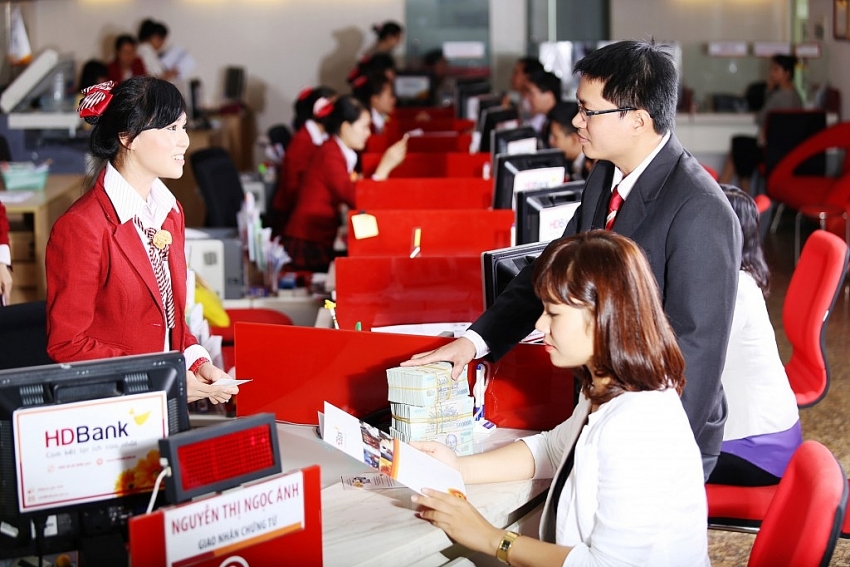Banks get back into M&A deals after a two-year lull
 |
| Banks get back into M&A deals after a two-year lull, Source: Dien Dan Doanh Nghiep |
The mergers and acquisitions (M&A) deal between HDBank and PGBank was scheduled for completion this month, meaning that PGBank will have its operational licence withdrawn and HDBank will take over all legitimate rights and benefits of PGBank.
After the deal, HDBank’s charter capital will touch VND12.81 trillion ($566.8 million). With a stock swap plan of 0.621 HDBank share for 1 PGBank share, PGBank’s stock batch will be converted into 186.3 million HDBank shares after realisation.
In light of current regulations, PGBank’s major shareholder Petrolimex–Vietnam’s largest fuel distributor–must divest entirely from PGBank. Petrolimex, which holds 40 per cent of PGBank’s charter capital, accounts for 50 per cent of Vietnam’s petrol market share, with an expansive network of 6,100 filling stations and sales agents carrying the Petrolimex brand nationwide. Market observers expect that the merger will help Ho Chi Minh City-based commercial lender HDBank make use of the existing advantages of both Petrolimex and PGBank, from there diversifying its range of products and services to mitigate its reliance on credit operations.
Earlier, PGBank had failed in finalising an M&A plan with major state-owned lender VietinBank. After bidding farewell to PGBank, VietinBank was said to consider a new M&A plan when its general director Le Duc Tho hinted that M&A is good as it brings opportunities for VietinBank to grow stronger.
In a related development, Ngo Chi Dung, chairman of VPBank, revealed that the bank’s recent commitment to boost its charter capital was to serve an M&A plan in 2018. VPBank raised its charter capital to VND27 trillion ($1.19 billion) from VND15 trillion ($663 million) at the beginning of this year.
The bank has experience with M&A deals. VPBank bought out Vinacomin Finance Company in 2014, then shifted the acquired company’s business model. Thanks to the deal, the bank now owns a “goose that lays golden eggs”, FE Credit, which holds about 50 per cent of Vietnam’s consumer finance market share. FE Credit was responsible for nearly half of VPBank’s profits in recent years.
The executives of many other banks have also expressed their eagerness to jump on the M&A bandwagon once opportunities arrive. Representatives of LienVietPostBank and MBBank told VIR that capital increases and M&A engagement are under consideration at their banks. The targets of these banks might be credit institutions entitled to be restructured by the State Bank of Vietnam (SBV), such as Dong A Bank, GPBank or Ocean Bank.
In fact, M&A in banking has lain dormant for the past two years, with the only exceptions being deals involving foreign bank entities, such as South Korea’s Shinhan Bank Vietnam buying ANZ Vietnam’s retail business or local VIB buying the retail segment of Australia’s Commonwealth Bank.
Industry insiders have named stricter regulations in the SBV’s Circular No.39/2016/TT-NHNN as one of the reasons behind the banking sector’s uneventful M&A picture in recent years. Under the circular, commercial banks face more restrictions in borrowing to buy stakes in other banks than previously. However, it was said that there would be an M&A wave in banking in the near future.
In the words of CEO of a foreign bank, M&As among banks are an inevitable trend as the SBV will increasingly scale up operation standards, such as Basel II as well as regulations on liquidity or capital adequacy ratios. Therefore, smaller or underperforming banks need to merge with strong ones to ensure their own survival.
What the stars mean:
★ Poor ★ ★ Promising ★★★ Good ★★★★ Very good ★★★★★ Exceptional
Related Contents
Latest News
More News
- NAB Innovation Centre underscores Vietnam’s appeal for tech investment (January 30, 2026 | 11:16)
- Vietnam moves towards market-based fuel management with E10 rollout (January 30, 2026 | 11:10)
- Vietnam startup funding enters a period of capital reset (January 30, 2026 | 11:06)
- Vietnam strengthens public debt management with World Bank and IMF (January 30, 2026 | 11:00)
- PM inspects APEC 2027 project progress in An Giang province (January 29, 2026 | 09:00)
- Vietnam among the world’s top 15 trading nations (January 28, 2026 | 17:12)
- Vietnam accelerates preparations for arbitration centre linked to new financial hub (January 28, 2026 | 17:09)
- Vietnam's IPO market on recovery trajectory (January 28, 2026 | 17:04)
- Digital economy takes centre stage in Vietnam’s new growth model (January 28, 2026 | 11:43)
- EU Council president to visit Vietnam amid partnership upgrade (January 28, 2026 | 11:00)

 Tag:
Tag:



















 Mobile Version
Mobile Version